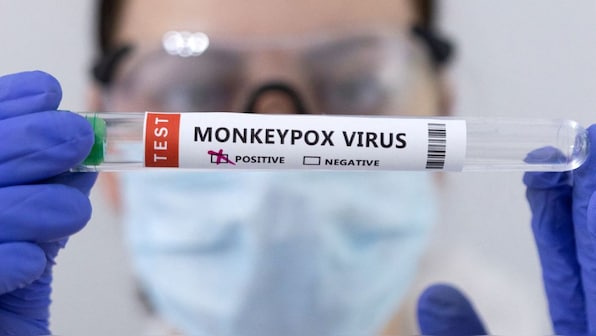Mpox: WHO, partners activate platform for emergency response
The World Health Organisation (WHO), and partners have activated the Global Health Emergency Corps (GHEC) for the first time to provide support to countries facing mpox outbreaks.
According to the world health body, GHEC is a collaboration platform for countries and health emergency networks.
“It supports countries on their health emergency workforce, the surge deployment of experts and the networking of technical leaders.
“GHEC was established by WHO in 2023 after the response to the COVID-19 pandemic revealed the need to streamline efforts of existing networks to ensure better-coordinated support to countries,’’ it said.
The world body said that the GHEC was a grouping of professionals with the objective of strengthening the response to health emergencies.
Dr Mike Ryan, Executive Director of WHO’s Health Emergencies Programme said that WHO and partners are supporting the government of the Democratic Republic of the Congo and other countries to implement an integrated approach to case detection.
Ryan said they are epected to carry out contact tracing, targeted vaccination, clinical and home care, infection prevention and control, community engagement and mobilization, and specialized logistical support.
“The GHEC enhances the ability of the many effective responders at national and regional levels to collaborate and ensure the success on the ground in interrupting transmission and reducing suffering,” he said.
According to him, the first activation of the new support mechanism follows the declaration of mpox as a public health emergency of international concern by WHO Director-General Dr Tedros Ghebreyesus on Aug. 14.
He said that 18 African countries have reported mpox cases in 2024 and the rapid spread of clade 1b mpox to at least two other regions has raised concerns about further spread.
“In collaboration with the International Association of National Public Health Institutes, GHEC is assessing the emergency workforce capacities in eight countries affected by the mpox outbreak.
“This includes the Democratic Republic of the Congo and Burundi, the two most affected countries,’’ Ryan said.
According to him, the assessment has so far identified 22 areas that need strengthening, including epidemiology and surveillance, laboratory capacities, infection prevention and control, risk communication and community engagement.
“In the Democratic Republic of the Congo, the Health Cluster partners have joined in strengthening the coordination set up by the Ministry of Health under the leadership of the public health emergency operations centre.
“As of Oct. 17, WHO has managed the deployment of 56 experts to the affected countries.
“This includes WHO staff as well as experts mobilised through the Global Outbreak Alert and Response Network (GOARN) and the African Volunteers Health Corps (AVoHC-SURGE),’’ he said.
Dr Abdou Gueye is the Regional Emergency Director for the WHO Regional Office for Africa.
Gueye said that the AVoHC-SURGE responders, coordinated by WHO’s Regional Office for Africa and the Africa Centres for Disease Control and Prevention are a growing cohort of professionals with diverse skillsets that can be deployed in the region.
He said that by mobilising trained professionals from within the continent, they ensure that responses are not only timely but also contextually relevant.
“The dedication and expertise of these responders are essential in saving lives and building resilient health systems capable of withstanding future threats,’’ he said.
According to him, GOARN is leading the efforts to map the support provided by partners on a bilateral basis to affected countries and the regional coordination structure.
“This includes the provision of experts, supplies, financial support, capacity strengthening and other activities.
“As part of the GHEC activation, on Oct. 22, technical leaders from affected countries and leaders from other countries, including those who have experienced previous mpox outbreaks, convened to discuss the most effective control measures.
“They also share best practices and coordinate their efforts to halt the outbreak,’’ he said.


Comments are closed.